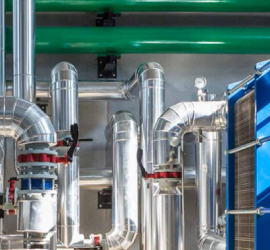
What is decarbonization and why is it so important?

Fortunately, the path to decarbonization includes many strategies that can help reach the goal of zero emissions and therefore mitigate the worst consequences of global warming and climate change.
The first step is electrification of residential and business activities, as well as mobility. Another step is investing in clean energy production. While electrification is the end goal, it is important that it be reached through use of sustainable energy sources: electrifying the economy by burning more coal or natural gas will not solve the GHG problem; it will only shift it away from end-users to producers. Therefore, it is crucial that electrification be based upon the use of renewable sources like solar, wind, hydro and geothermal. Also important is digitalization: the introduction of digital technologies and Internet-of-Things (IoT) applications will make energy use increasingly efficient, helping to reduce emissions of greenhouse gases and helping companies, governments and private citizens save on their energy bills.
The decarbonization and energy transition process
While many elements have to come together for humanity to “solve” the climate change puzzle and reverse the course of global warming, two stand out as crucial: decarbonization (discussed above) and the energy transition. By energy transition we mean both the global energy sector’s shift from fossil-based systems of energy production – oil, natural gas and coal – to renewables like solar, wind, geothermal and clean hydrogen, as well as increasing efficiency in energy production, distribution and consumption, which promotes massive reductions in climate-altering emissions.
According to the United Nations the energy transition is important because it is a pathway to keep global warming to no more than 1.5°C above pre-industrial levels – as called for in the Paris Agreement – a goal that can only be achieved by reducing global greenhouse gas emissions by 45% by 2030 and to net zero by 2050. Meeting these targets is seen as crucial to efforts to mitigate the destabilizing effects of climate change.






